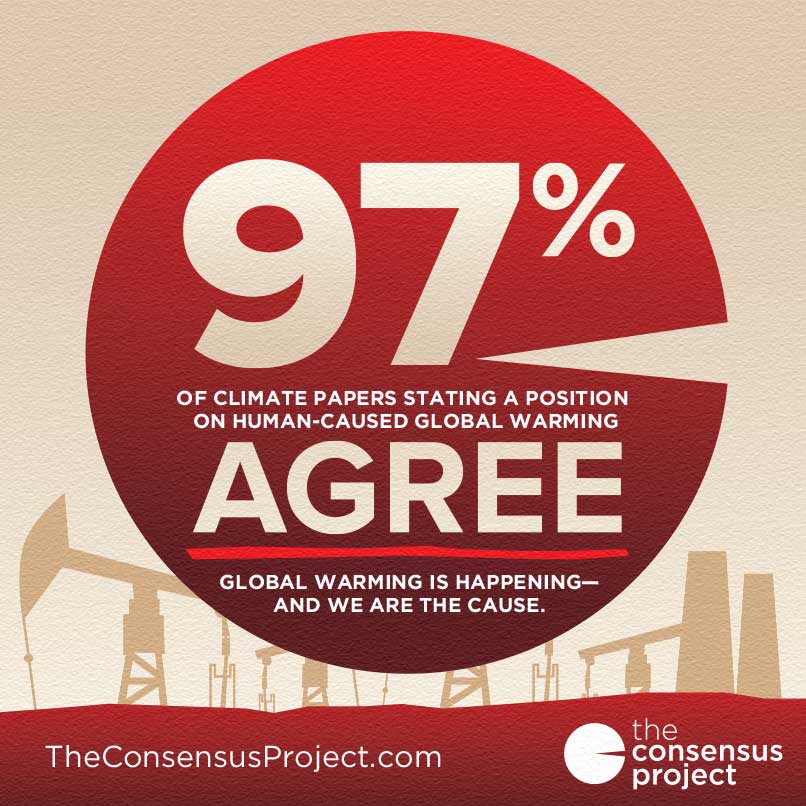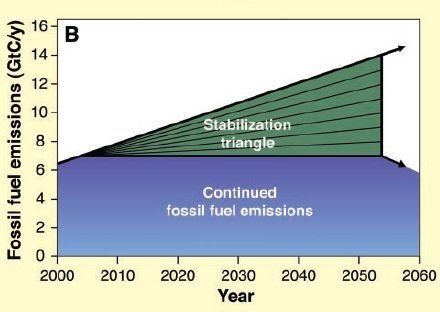Judith Curry has a bad habit of preening over her worst examples of careless and sloppy thinking. In just the past few weeks, for example, she has
repeatedly referred back to
this awful train wreck of an argument:
There does seem to be an IPCC/UNFCCC ideology, let me try to lay it out here. I am using quotes from Michael Mann’s recent interview in the Bulletin of the Atomic Scientists, which I find to be a lucid statement of some elements of this.
1. Anthropogenic climate change is real: “there is a
very consistent story told by surface, sub-surface, ocean, atmospheric,
and ice observations that Earth’s surface is warming, and in a way that
is only consistent with human-caused increases in greenhouse gas
concentrations.” (Mann)
2. Anthropogenic climate change is dangerous and we need to something about it:
“I believe it’s not too late to take the steps that are necessary to
mitigate truly dangerous future climate change. There is still time to
take action to stabilize greenhouse gases to a point where they don’t
become a dangerous threat to humanity.” (Mann)
3. The fossil fuel industry is trying to convince people that climate change is a hoax:
“[P]owerful special interests in the fossil fuel industry . . . have
invested millions of dollars in well-honed disinformation campaigns to
convince the public and policy makers that human-caused climate change
is either a hoax, or not nearly the threat that the scientific community
has established it to be.”
4. Deniers are attacking climate science and scientists:
“I’ve been the subject of attacks by climate-change deniers for more
than a decade now, because of the prominent role that the “hockey stick”
temperature reconstruction has played in the public discourse on
climate change.”
5. Action is needed to prevent dangerous climate change:
“There are various episodes in our not-so-distant past when we were
threatened by global environmental catastrophe and took action.” (Mann)
6. Deniers and fossil fuel industry are delaying UNFCCC mitigatory policies.
“[Powerful special interests] have delayed any policy actions by at
least a decade, perhaps more. The potential opportunity cost of that
delay to humanity is impossible to estimate, but it is certainly
staggering.” (Mann)
This is a political ideology. #1 is about science. #4 is in
principle about science and scientists, except there is the automatic
assumption that a bonafide scientific criticism is a political attack.
The rest of it is politics.
Leaving aside the small army of straw men (Michael Mann is synonymous with a "IPCC/UNFCCC ideology," really?) Curry here plunges into a straightforward embrace of the fallacy of the excluded middle, aka a
false dilemma. The two tentpoles of her fallacy are "science" and "politics"; anything not science is "politics."
Of course many propositions are neither science nor politics. If you see a Mac truck barreling down on a jogger crossing the street, and you scream "Look out!" is that "science" or "politics"?
 |
| Dear idiot, get out of the way. Sincerely, "politics." |
"Look out!" as a statement cannot be considered scientific. As some say of the case that climate change is dangerous, it relies on "values" (most statements do). In this particular example, those would be the "values" or not wanting to die of infected bedsores in a nursing home after a speeding truck smashes your spine. That is a matter of placing a "value" on life and health, but it is hardly "political" or "ideological" because both of those adjectives describe positions emerging from values that are not widely shared.
Ferinstance, take Rick Santorum (please). Rick Santorum says contraception is harmful to women. This is a belief that comes from the teachings of the Catholic church, and does not reflect a widely shared notion of "harm." It doesn't reflect harm to one's health (pregnancy being a greater danger to women's health than the expected consequences of contraception-assisted sex) or one's economic or professional position (unplanned children are bad for both) or any widely accepted measure of women's mental or emotional well-being. It is a moral position, which is to say, he believes that contraception and non-procreative sex are morally abhorrent and damaging to the spiritual health of women. That is a position shared by a group of American who share a number of other beliefs. It is ideological.
Is it ideological in the same sense to say "Anthropogenic climate change is dangerous" (point 2a)? Or is it more akin to "Look out!"?
The scientific facts of a multi-meter sea rise mean the loss of land and other resources to the ocean, to erosion, to greater storm surges, to the salinization of the water table. You can argue against the science that says this is likely to happen (the truck's not really headed for the crosswalk; the truck is already braking; I am the favorite of the Sith Lords and will stop the truck at the last minute with the Force, etc.) But that is not a political or ideological argument; it's still a scientific argument.
The political argument would be that, within the accepted facts, the truck hitting us isn't dangerous. That a multi-meter sea level rise would be a good thing for humanity -- or that humanity deserves to suffer. In order for ideology to come into play, as Dr. Curry wishes, we would need an ideology to raise its hand and explain how a poorer, hungrier, storm-wracked, Amazon-to-ash world
is something that we should want.
Pseudoskeptics know that there is no argument to be made there: that is why you see them spending their industry millions attacking the teaching of global warming
science, funding dubious research into global warming
science, questioning the objectivity, reliability, and veracity of
science.
If there was a "values" argument or an "ideological" argument to be made, you would expect them to be promoting ideas like "Rising oceans will purge the sinful coasts" or "Wealth -- the root of all evil and how global warming will save you from it."
If no one wants to live in that poorer, more dangerous, more extreme post-warming world, then there is no ideological question; there is no values question, at least until when get to
how to prevent global warming and
who should make the biggest adjustments. I think I can safely speak for Michael Mann and many other presumptive members of the so-called "IPCC/UNFCCC ideology" when I say we would love to move the debate forward to the how.
Until we do, as long as we are still debating the whether, there is only the scientific question of whether are current actions are likely to lead to that future. If they are, and that future is dangerous, then our actions are dangerous. No politics come into it.
Many propositions are neither scientific nor political. "Climate change is dangerous" is a statement assuming commonly held ideas about "danger" -- that we don't want to be killed, or lose our homes, or go hungry. "We should do something about it" involves the idea that people can through forethought and action avoid danger. Again, until and unless there arises a political lobby for the proposition "Our fate is inescapable" or "Humans are dirty sinful creatures and deserve to suffer," these aren't political statements, but statements of common sense.
Similarly, points #3 and #4 may not be "scientific," but they are factual. Not all that is factual is science. John Kennedy was assassinated November 22, 1963 -- that is not a scientific proposition, but it is true, and is neither "politics" nor "ideology." Parts of the fossil fuel industry (among others) are trying to convince the public climate change is a hoax. Deniers are attacking science and scientists. Those are objective realities, not "political" claims. Curry is flirting with outright tinfoil-hat membership when she attributes widespread belief in such things to "ideology" whilst failing to even nod at the overwhelming factual evidence that they are true.




















